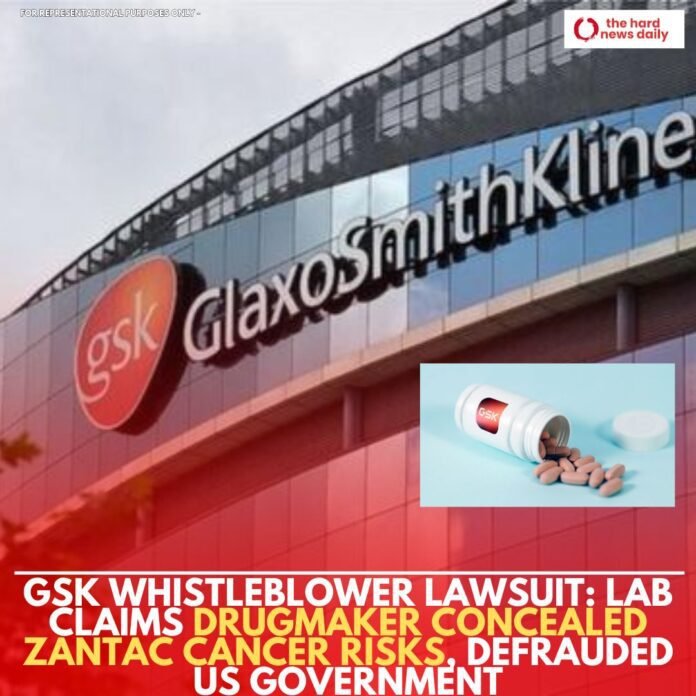GSK, a prominent pharmaceutical corporation based in the UK, is currently dealing with a legal case brought by Valisure, an independent laboratory in Connecticut. The lawsuit accuses GSK of committing fraud against the U.S. government by hiding the potential cancer hazards of Zantac. The case, submitted on Monday, alleges that GSK breached the federal False Claims Act by concealing the hazards of Zantac, also known as ranitidine, for a period of almost forty years. Medicare, Medicaid, and other health programs provided extensive financial coverage for the medicine, resulting in billions of dollars in prescription expenses.
Valisure, a laboratory located in New Haven, asserts that their testing in 2019 uncovered the presence of NMDA, a cancer-causing substance, in Zantac. They argue that this finding deems Zantac unsuitable for human consumption. The laboratory asserts that GSK withheld these discoveries from the U.S. Food and Drug Administration (FDA), which granted initial approval of Zantac in 1983.
Valisure has launched a complaint in Philadelphia, where some of GSK’s activities are located, seeking billions of dollars in damages from GSK. This includes civil fines of up to $11,000 per infraction. Valisure’s legal team also advocates for hundreds of people in personal injury cases against GSK and other corporations who marketed ranitidine.
GSK issued a response to the complaint, asserting that it will strongly defend itself against what it deems as baseless allegations made by Valisure. The company claims that the FDA has declared Valisure’s testing as “scientifically flawed and unreliable” and says that there is no consistent or credible data establishing a connection between ranitidine and elevated cancer risks.
The False Claims Act grants whistleblowers the authority to initiate lawsuits on behalf of the federal government and receive a portion of any financial settlements obtained. In 2019, Valisure filed a lawsuit against GSK on behalf of the United States and over twenty states, initially keeping it confidential. Nevertheless, the federal government chose not to participate in the lawsuit in March, which led Valisure to proceed autonomously.
Zantac, formerly a highly successful prescription for treating heartburn, attained the status of the top-selling pharmaceutical worldwide in 1988 and was among the pioneers in surpassing $1 billion in yearly sales. Nevertheless, in April 2020, the FDA issued a request to pharmaceutical companies to remove Zantac and its generic versions from retail shelves. This action was taken after the FDA detected the presence of NDMA in samples, which was initially discovered through testing conducted by Valisure.
Although a federal judge dismissed around 50,000 Zantac claims in 2022 because to the rejection of the plaintiffs’ scientific experts, there are still over 70,000 private lawsuits awaiting resolution in U.S. courts. The majority of these cases are focused on a Delaware state court, where a judge is presently determining their viability. Furthermore, the first litigation about the connection between Zantac and cancer commenced in Chicago this month and is anticipated to reach a conclusion in the near future.
The lawsuit, named U.S. ex rel Valisure LLC v GlaxoSmithKline Plc et al, is now being tried in the U.S. District Court for the Eastern District of Pennsylvania with the case number 19-04239. The resolution of this legal case could have substantial ramifications for GSK and the wider pharmaceutical sector, particularly concerning the openness and security of commonly prescribed drugs.
(The story is published based on the data from a syndicated feed. However there can be minor changes from the original source article.)



